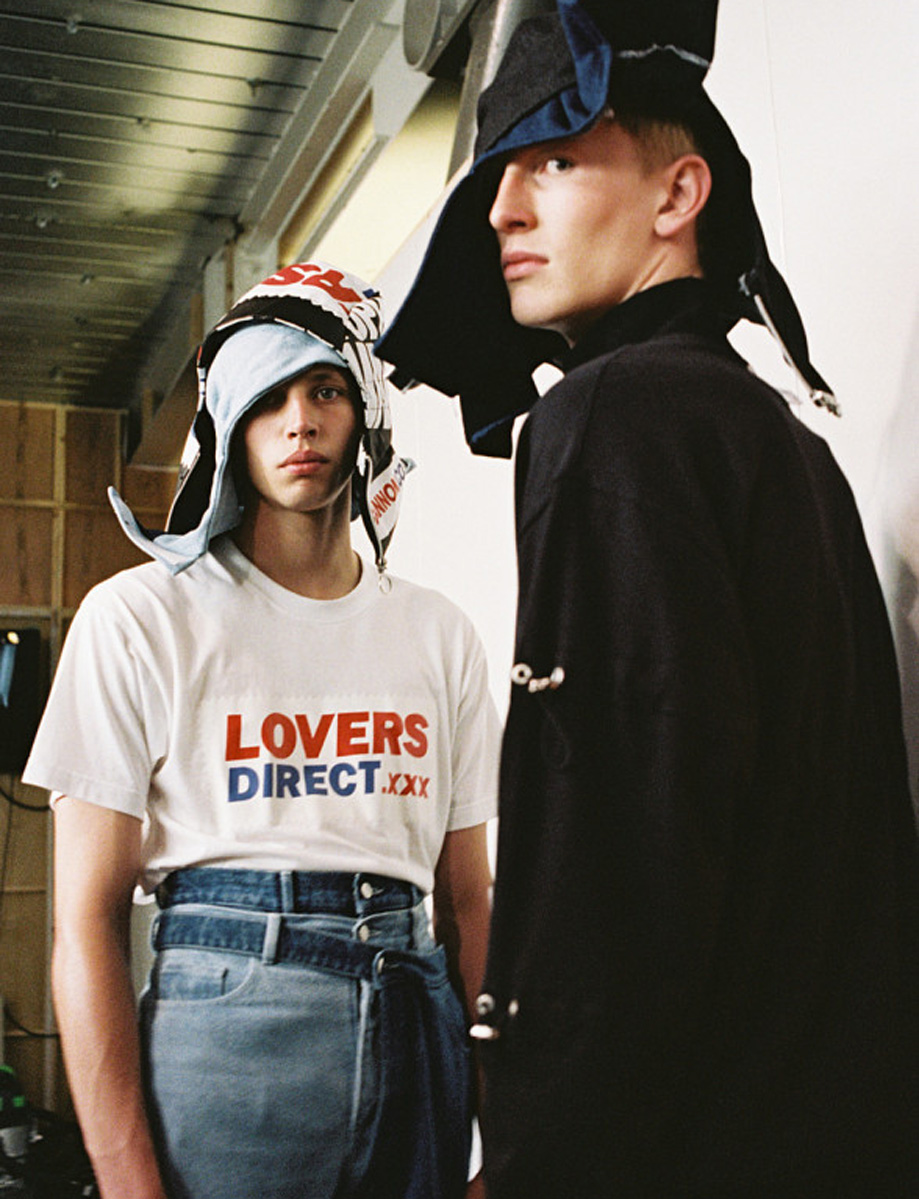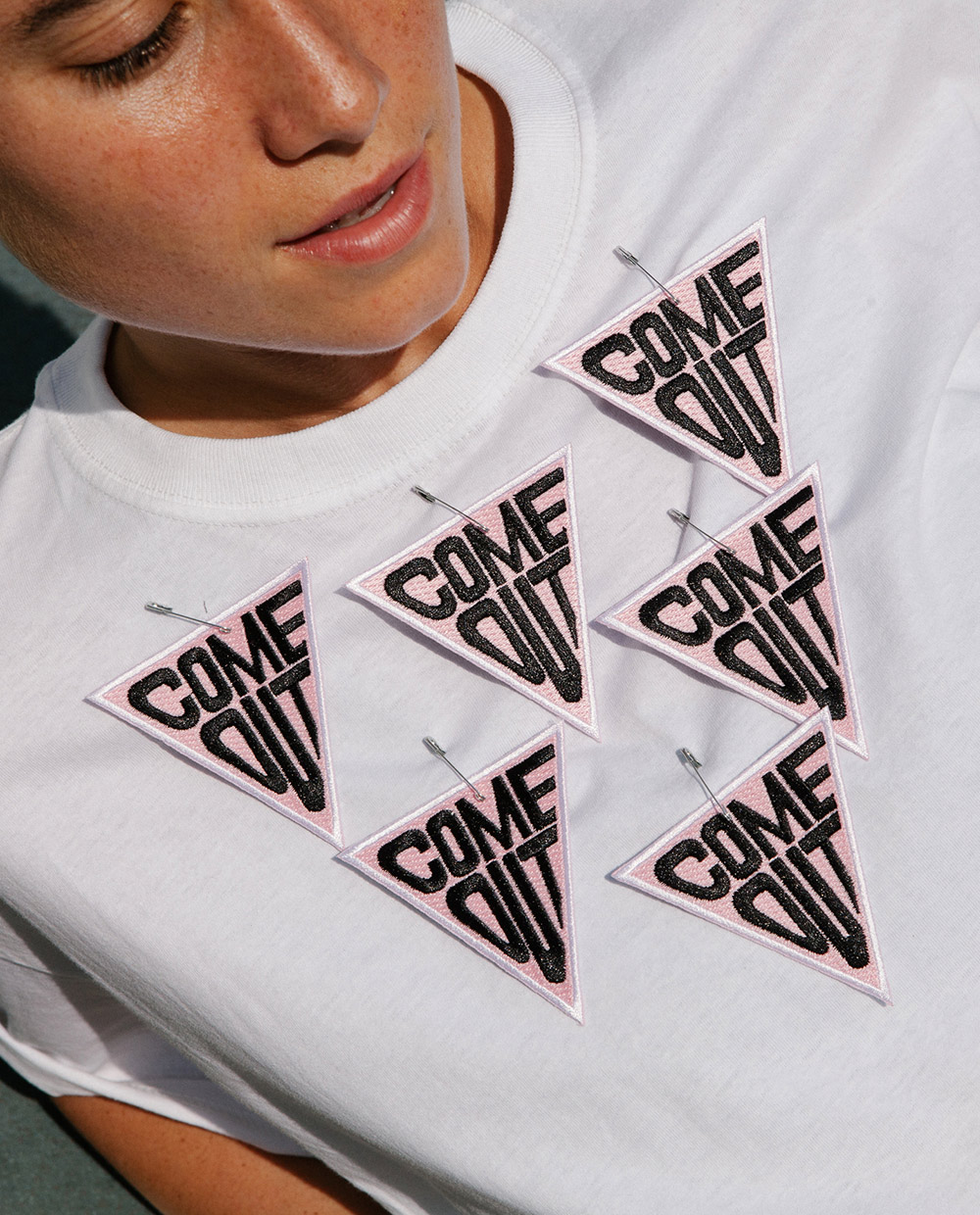No better example of this occurred only last year when Gucci was called out for copying a style seen before in the New York boutique of Dapper Dan, a tailor who fitted out hip-hop stars and celebrities throughout the 80s with takes on Gucci, Fendi and Louis Vuitton. It was a Vuitton jacket, no less, originally made for US athlete Diane Dixon in 1989, that bore a notable likeness to a Gucci jacket seen in their own Cruise ’18 collection. What we’re left with is a sequence of events whereby a European luxury house retrospectively pays homage to a 30-year-old bootlegged jacket, that in itself was ripping off a competing luxury house.
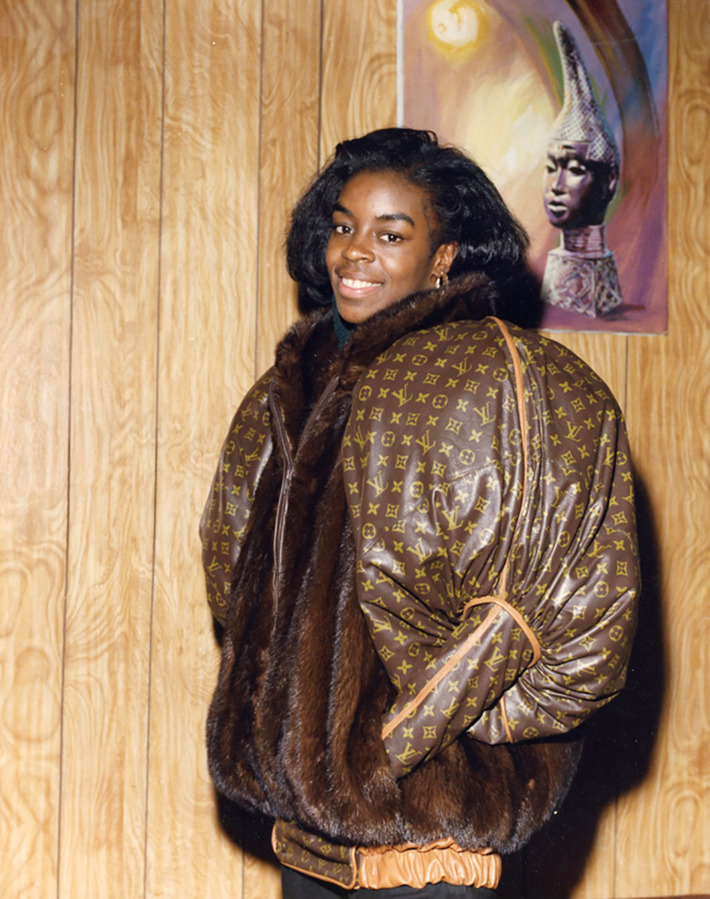
Furthermore, Dapper Dan’s influence was acknowledged by the opening of an atelier with Gucci, a recreation on a grand scale of his years-defunct original store. “Everyone paid homage to Dapper Dan, but no one ever paid him,” said Dapper Dan of the collaboration at the time. “The people have spoken and Gucci has listened. Nothing has been more significant in the Harlem cultural scene than Gucci coming to Harlem and partnering with Dapper Dan.
Louis Vuitton was at loggerheads with Supreme back in 2000 when the then-nascent skate brand revealed a set of decks, t-shirts and beanies boldly emblazoned with the iconic LV logo. A cease-and-desist duly ended continuation of the line but fast forward 17 years and the collaboration between the two brands, it’s fair to say, has become the biggest in recent fashion history, a zenith of the Haute Couture x Streetwear trend.
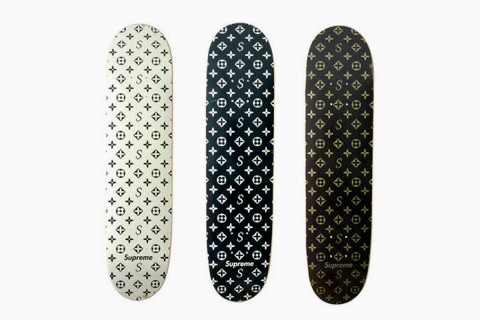
It’s again a testament to the pace of trends that our current desire for such co-branding-cum-bootleg merchandise might only be traced back, in the mainstream at least, a couple of years to Georgian designer Demna Gvasalia, via his own street-wear brand Vetements and as head of Balenciaga. His appointment in 2015 at one of the oldest and most revered houses in itself has had him labelled as a fashion ‘disruptor’ from the get-go, energising as it did a perceptibly stuffy old brand with an internet age aesthetic. In October of 2016, Vetements sold out a one-off collection called The Original Fake consisting of altered versions of classic pieces, essentially pre-empting any attempt at bootlegging. A year prior to this the brand produced the infamous DHL tee that retailed for £185.

It is with this more humorous and playful precedent in mind (without failing to mention the clear influence of 90s brand FUCT’s reworking of the Ford logo) that many smaller street-wear brands are using this strategy to their own ends, whilst often striving for salient social commentary beyond that of Gvasalia’s questionable attempt at a middle finger to global capitalism.
Indeed his own attempt through Balenciaga’s take on US Presidential candidate Bernie Sanders’ campaign logo might reasonably be traced to Bristol Street Wear’s hugely popular Corbyn/Nike swoosh tee that surged in popularity with the Labour leader’s own amongst younger voters during the UK’s 2016 general election. Aside from their most famous creation the company gleefully riff on Asda, Adidas and cannabis, Greggs and Gucci, as well as Patagonia and Stone Island.
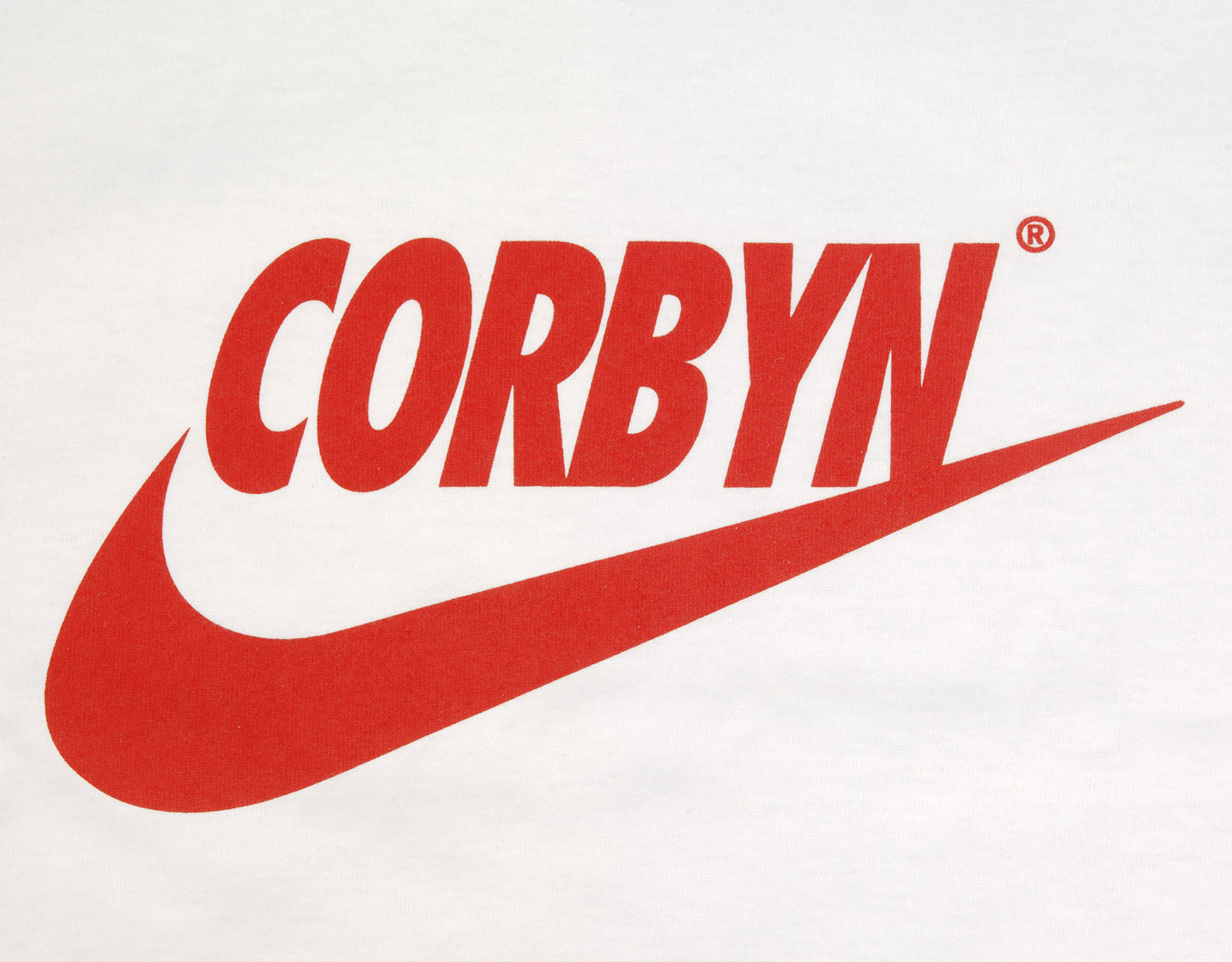
In a similar vein, brands such as Bowlcut and Oiboy take from overtly and identifiably consumerist industries – alcohol, tobacco, technology – to subvert them with slang or meme-like sensibility. Tottenham-based brand Sportsbanger scored a Skepta-endorsed hit a couple of years back with their upside-down reworking of Reebok’s logo which in itself has just recently been re-reworked (if such a thing is possible) by Reebok Classics in conjunction with Atlantan record label LVRN. They too successfully utilised the Nike swoosh, underneath the NHS logo, to produce a t-shirt in solidarity with the Junior doctor’s strike of 2016, offering a donation of 15% on the sale price to the cause. They edge things somewhat further with an excellent spin on the Polo Ralph Lauren logo above a horse-backed riot policeman taking a swing for Margaret Thatcher. Needless to say, both are sold out.
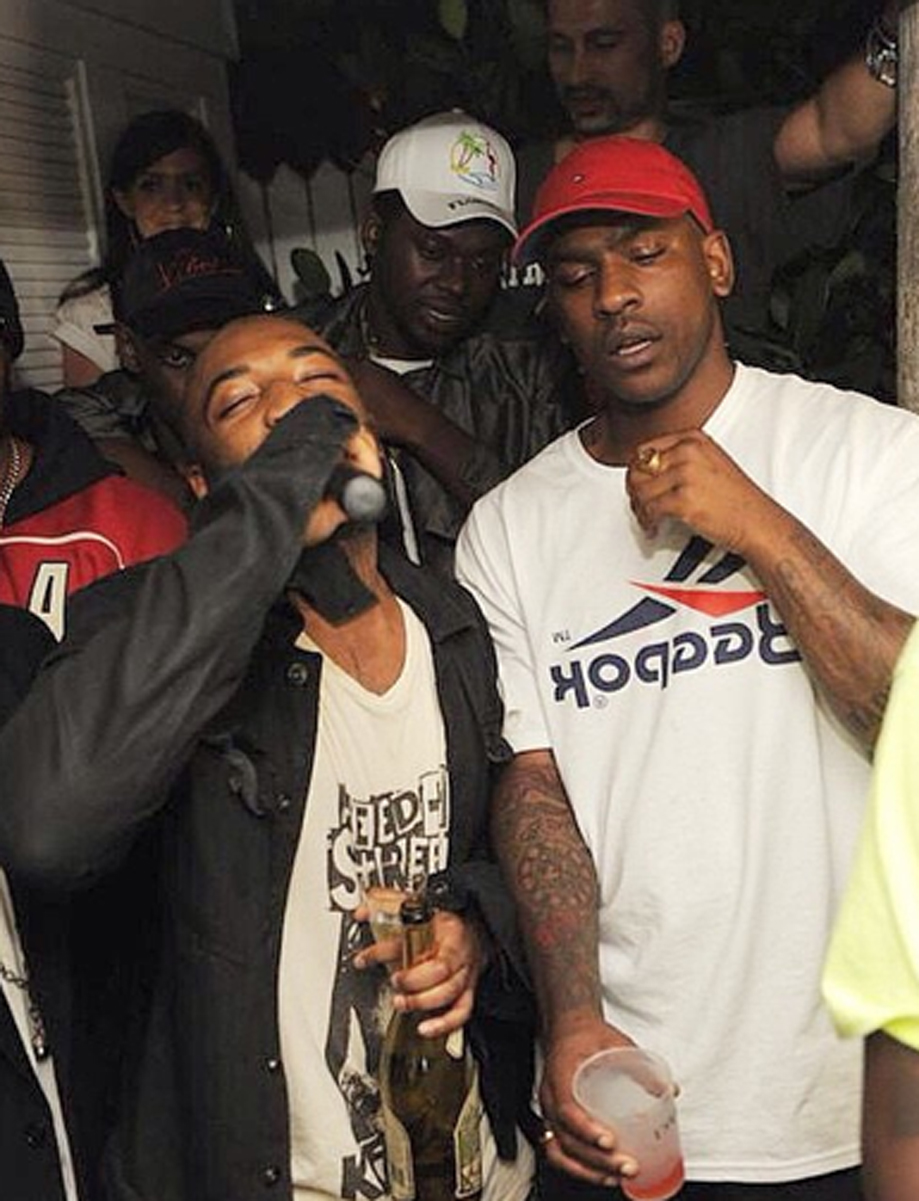
Whilst many of these smaller brands inevitably face a limited shelf-life, the time in which they are allowed to exist and enjoy relative success, added to the influence they are increasingly allowed to exert, either speaks volumes for the democratisation of fashion or says we’re stuck in an endless self-referential logo loop. Only the consumer decides.
Read through our list of 20 T-shirt brand you should know in 2018.



